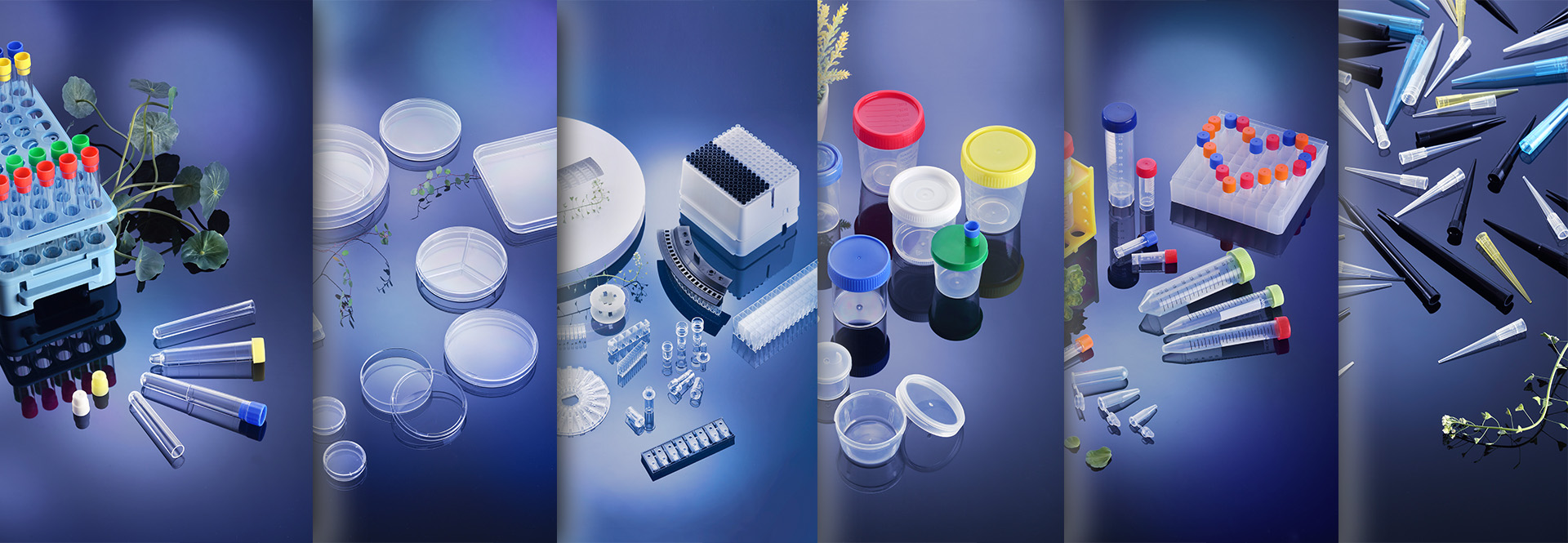Test tubes serve as essential tools in scientific research, enabling scientists to explore, measure, and analyze the world around us. This comprehensive guide delves into the role and applications of test tubes in various research endeavors. We explore the different types of test tubes, highlighting their crucial functions in conducting experiments, performing analysis, and measuring precise quantities. Gain insight into the significant role that test tubes play in advancing scientific knowledge across diverse disciplines. Join us as we delve into the fascinating world of test tubes and their indispensability in scientific research.

Item No | Description | Packing Info. | Qty./Case(pc) | Case Size(cm) |
E05 | 16*100mm plastic Test Tube | 250pcs/bag*12 | 3000 | 56*35*31 |
E06 | 13*100mm plastic Test Tube | 300pcs/bag*10 | 3000 | 56*35*31 |
E07 | 13*78mm plastic Test Tube | 400pcs/bag*10 | 4000 | 56*35*31 |
E08 | 12*75mm plastic Test Tube | 500pcs/bag*10 | 5000 | 56*35*31 |
E09 | 12*60mm plastic Test Tube | 500pcs/bag*10 | 5000 | 56*35*31 |
Test tubes, the cylindrical wonders of scientific laboratories, play a profound role in conducting accurate and reliable scientific research. These glass vessels are indispensable tools for scientists across various disciplines. This article aims to shed light on the applications and importance of test tubes in scientific experimentation.
Sample Collection and Handling:
Test tubes are commonly used for sample collection in diverse scientific fields. They provide a sterile environment for storing and analyzing liquids, cells, tissues, and other materials. The transparent nature of test tubes allows researchers to observe changes in samples, such as color, precipitate formation, or phase separations. Furthermore, test tubes enable the safe transportation of samples from one location to another, ensuring the integrity and viability of the collected materials.
Chemical Reactions and Mixing:
Test tubes act as mini reaction chambers in laboratory settings. They offer a controlled environment for conducting chemical reactions and mixtures. Researchers can combine different substances, observe their reactions, and study the resulting products. Test tubes are particularly useful for carrying out small-scale reactions, allowing scientists to conserve reagents while obtaining essential data. The versatility of test tubes in facilitating precise chemical reactions greatly contributes to the advancement of scientific understanding.
Experimentation and Analysis:
Test tubes are the vessels of choice for conducting experiments and analysis. By using test tubes, researchers can carefully isolate substances and control the variables under investigation. The regular shape and standardized volume of test tubes provide consistency in experimental conditions, ensuring reproducibility and accuracy. Moreover, the easy scalability of test tube experiments allows scientists to determine optimal parameters before moving on to larger-scale studies. The reliable data obtained from test tube experiments forms the basis for scientific advancements and breakthroughs.
Variety of Test Tube Types:
Test tubes come in various types to accommodate different research needs. Standard glass test tubes are commonly used for general purposes, while specialized test tubes are available for specific applications like centrifugation or spectrophotometry. Plastic test tubes offer enhanced safety and convenience, particularly in situations where breakage is a concern. By selecting the appropriate type of test tube, researchers can optimize their experimental conditions and achieve optimal results.
Proper Handling and Safety Measures:
It is crucial to handle test tubes with care to ensure safety and accuracy. Proper techniques, such as using tube racks or holders, prevent accidental breakages and spills. Additionally, researchers must be mindful of safety precautions when working with volatile or hazardous substances. Proper disposal of used test tubes and adherence to laboratory safety protocols are imperative to maintain a safe working environment.
In conclusion, test tubes are indispensable tools in scientific research. From sample collection and storage to conducting chemical reactions and experimentation, they serve as reliable vessels for scientific exploration. The versatile nature of test tubes allows researchers to perform a wide range of experiments with precision and accuracy. By understanding the applications and importance of test tubes in scientific research, we can appreciate their role in advancing knowledge in various scientific disciplines.

Contact: Neo
Phone: 008615867460640
E-mail: Info@Hwtai.com
Whatsapp:008615867460640
Add: Building 2, Xinmao Qilu Science Technology Industrial Park, Tianqiao District, Jinan City, Shandong Province,China.
We chat
